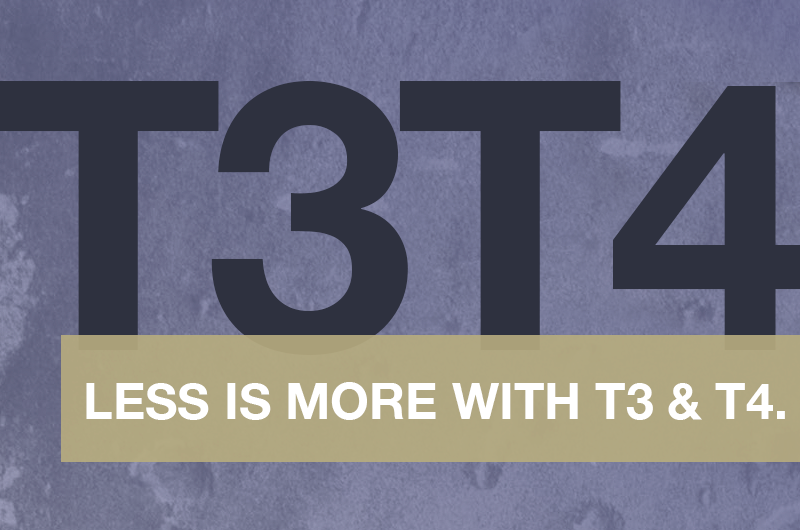Less is More with T3 and T4
Mar 13, 2018 - Profiles
Learn more about how WHIV at Women's College Hospital in Toronto spearheaded a quality improvement initiative aimed at reducing the bundling of TSH, fTt, and fT4 tests.
Less is More with T3 and T4
Mar 13, 2018 - Profiles
Learn more about how WHIV at Women's College Hospital in Toronto spearheaded a quality improvement initiative aimed at reducing the bundling of TSH, fTt, and fT4 tests.

Unnecessary tests can strain the health care system beyond just the physical cost of testing equipment. For clinicians and patients, unnecessary ordering can cause delays in patient care and affect how we access health care services.
Bundling tests or standardized order sets are significant drivers of overuse in health care. An example of tests that are often bundled or ordered simultaneously is thyroid stimulating hormone (TSH) and free thyroid hormones, namely triiodothyronine (fT3) and thyroxine (fT4). Testing for free thyroid hormone levels (fT3 and fT4) at the same time as testing TSH doesn’t actually help clinicians diagnose or treat thyroid disease in the majority of cases. Rather, the TSH test on its own can provide enough information to make an introductory diagnosis.
To understand if it would be possible to reduce some of this unnecessary testing, Dr. Geetha Mukerji, WIHV Clinical Lead in Quality and endocrinologist at Women’s College Hospital (WCH), along with a group of engaged postgraduate endocrine trainees, spearheaded a quality improvement initiative aimed at reducing the bundling of TSH, fTt, and fT4 tests. “It was essential to build a strong quality improvement team and engage with all the relevant stakeholders from the front line, senior management and lab personnel to support the success of the project” said Dr. Geetha Mukerji.
Educational materials for health care providers on when fT3 and fT4 tests should be ordered were posted in frequented work areas and emails were sent out to clinicians letting them know that there would be changes made in the ordering process. Free thyroid hormone tests would only be processed if there was a stated clinical reason, the lab team would then look at the indication and decide if it was appropriate to be processed based on a range.
The results were dramatic. Over a period of six months, the team was able to reduce fT4/fT3 testing by 54% without any adverse effects for patients. . Due to the success of this intervention, St. Michael’s Hospital (SMH) and University Health Network (UHN) have now started using similar approaches.
“When you can find a solution that requires limited resources to implement and leads to sustainable changes, it can then be spread to other centers and promote highvalue care,” says Dr. Geetha Mukerji.
Results of this de-implementation project were published in the Journal of Evaluation in Clinical Practice earlier this year and inspired the Less is More with T3 and T4, toolkit coauthored by Dr. Geetha Mukerji and Dr. Julie Gilmour.
With so many Canadians being regularly tested for thyroid hormone function, it is easy to see the substantial impact a project like this could have nationally. Simple changes in practice and how we order can reduce the ever growing strain on labs to process tests without affecting the quality of care provided to patients. These are the types of changes that can help spread the mission of Choosing Wisely and encourage all clinicians and patients to make smart and effective care choices.
This article was originally published on WCH website and was written by Hayley Baranek and Jennifer Lee
